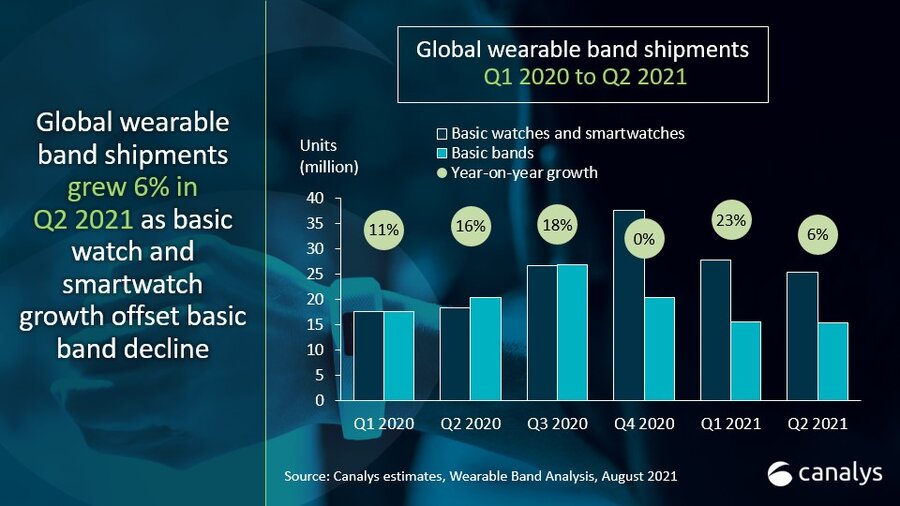China smartphone shipments Q1 2020
Shanghai (China), Bengaluru (India), Singapore, Reading (UK) and Portland (US) – Friday, 1 May 2020
China’s smartphone market took a big hit in Q1 2020, as the country struggled with COVID-19. According to Canalys’ latest data, smartphone shipments fell 18% year on year in the world’s largest market. The major smartphone vendors were resilient during the coronavirus pandemic, with the top five all reporting better-than-expected results. Huawei was the leading vendor in the Chinese market, recording another terrific quarter, and the only top-five vendor to grow shipments annually amid the difficult market conditions. Oppo retained second place, while Vivo took third, with shipments down 26% and 19% respectively. Xiaomi suffered a 26% year-on-year decline in Q1 to remain in the top four, followed by Apple in fifth.
“The smartphone’s status as an ‘essential’ personal item has stopped the market falling further during the pandemic,” said Nicole Peng, VP Mobility. “The Q1 performance was also buoyed by China’s well-established ecommerce channel for smartphone distribution, and the fact that most Chinese businesses were able to resume work rapidly after two weeks of nationwide travel restrictions. Unfortunately, the same conditions do not apply in any other major markets in the world.”

“The vendors with the greatest financial resources, supply chain control and negotiating power with the channel are recovering fastest, while smaller vendors have been brought down,” said Canalys Analyst Mo Jia. “The coronavirus crisis has pushed the market toward the top five, which now account for nearly 95% of the total market. Huawei, for example, is using its strength in the 5G supply chain, and its channel volume, to suppress its rivals. Its flagship P and Mate series smartphones are widely considered to be the only serious challengers to Apple’s iPhones at the high end, which creates momentum and positive brand sentiment to drive the rest of its device portfolio. Distribution channels are increasingly dependent on Huawei’s high-end business, which yields higher margins. Its peers, Xiaomi, Oppo and Vivo, have only recently ramped up investment in their own flagships, and these are not yet seen as strong alternatives to Huawei’s models,” said Mo.
The pandemic has not had a material impact on China’s 5G progress, both in terms of infrastructure deployment from operators and device roll-out from handset vendors as many of them switched to online launches. “Huawei is leading in 5G market share after six months of commercial roll-out,” said Louis Liu, Research Analyst. “In the latter stages of Q1, it benefited from a sizable inventory, which was built up ahead of the lockdown. Oppo, Xiaomi and Vivo are pushing aggressively too, but their 5G shipments have been affected by the Q1 production shock. Later this year, operators will start to bring down 5G tariff costs, and provide a variety of sales incentives for 5G devices. But before that happens, device vendors will need to drive end-user demand themselves, which will include bringing 5G smartphone prices below CNY1,500 (US$200) by the end of 2020.”

“Looking ahead, we remain cautious about the speed of recovery in China’s smartphone market this year, and maintain our best-case scenario of 326 million shipments for 2020, including 137 million 5G smartphones. Rising unemployment, especially in the manufacturing, retail, travel and tourism industries, as well as the sharp decline in company revenue and profits, casts a shadow over domestic consumer confidence and spending power. This, in turn, will have a negative effect on the market’s ASP. The macroeconomic situation is a huge red flag for China’s market players this year,” said Peng.
|
People’s Republic of China (mainland) smartphone shipments and annual growth |
|||||
|
Vendor |
Q1 2020 |
Q1 2020 market share |
Q1 2019 |
Q1 2019 market share |
Annual |
|
Huawei |
30.1 |
41.4% |
29.9 |
33.9% |
1% |
|
Oppo |
12.5 |
17.2% |
16.8 |
19.1% |
-26% |
|
Vivo |
12.1 |
16.7% |
15.0 |
17.0% |
-19% |
|
Xiaomi |
7.8 |
10.7% |
10.5 |
11.9% |
-26% |
|
Apple |
6.2 |
8.5% |
6.5 |
7.3% |
-4% |
|
Others |
4.0 |
5.5% |
9.5 |
10.7% |
-58% |
|
Total |
72.6 |
100% |
88.1 |
100% |
-18% |
|
Note: percentages may not add up to 100% due to rounding |
|||||
For more information, please contact:
Canalys China
Nicole Peng: nicole_peng@canalys.com +86 150 2186 8330
Louis Liu: louis_liu@canalys.com +86 136 2177 7745
Canalys India
Rushabh Doshi: rushabh_doshi@canalys.com +91 99728 54174
Madhumita Chaudhary: madhumita_chaudhary@canalys.com +91 77740 51094
Adwait Mardikar: adwait_mardikar@canalys.com +91 96651 38668
Canalys Singapore
Shengtao Jin: shengtao_jin@canalys.com +65 6657 9303
Matthew Xie: matthew_xie@canalys.com +65 8319 8343
Canalys UK
Ben Stanton: ben_stanton@canalys.com +44 7824 114 350
Mo Jia: mo_jia@canalys.com +33 785 683 766
Canalys USA
Marcy Ryan: marcy_ryan@canalys.com +1 650 862 4299
Vincent Thielke: vincent_thielke@canalys.com +1 650 644 9970
Canalys is an independent analyst company that strives to guide clients on the future of the technology industry and to think beyond the business models of the past. We deliver smart market insights to IT, channel and service provider professionals around the world. We stake our reputation on the quality of our data, our innovative use of technology and our high level of customer service.
To receive media alerts directly, or for more information about our events, services or custom research and consulting capabilities, please contact us. Alternatively, you can email press@canalys.com.
Please click here to unsubscribe
Copyright © Canalys 2020. All rights reserved.



